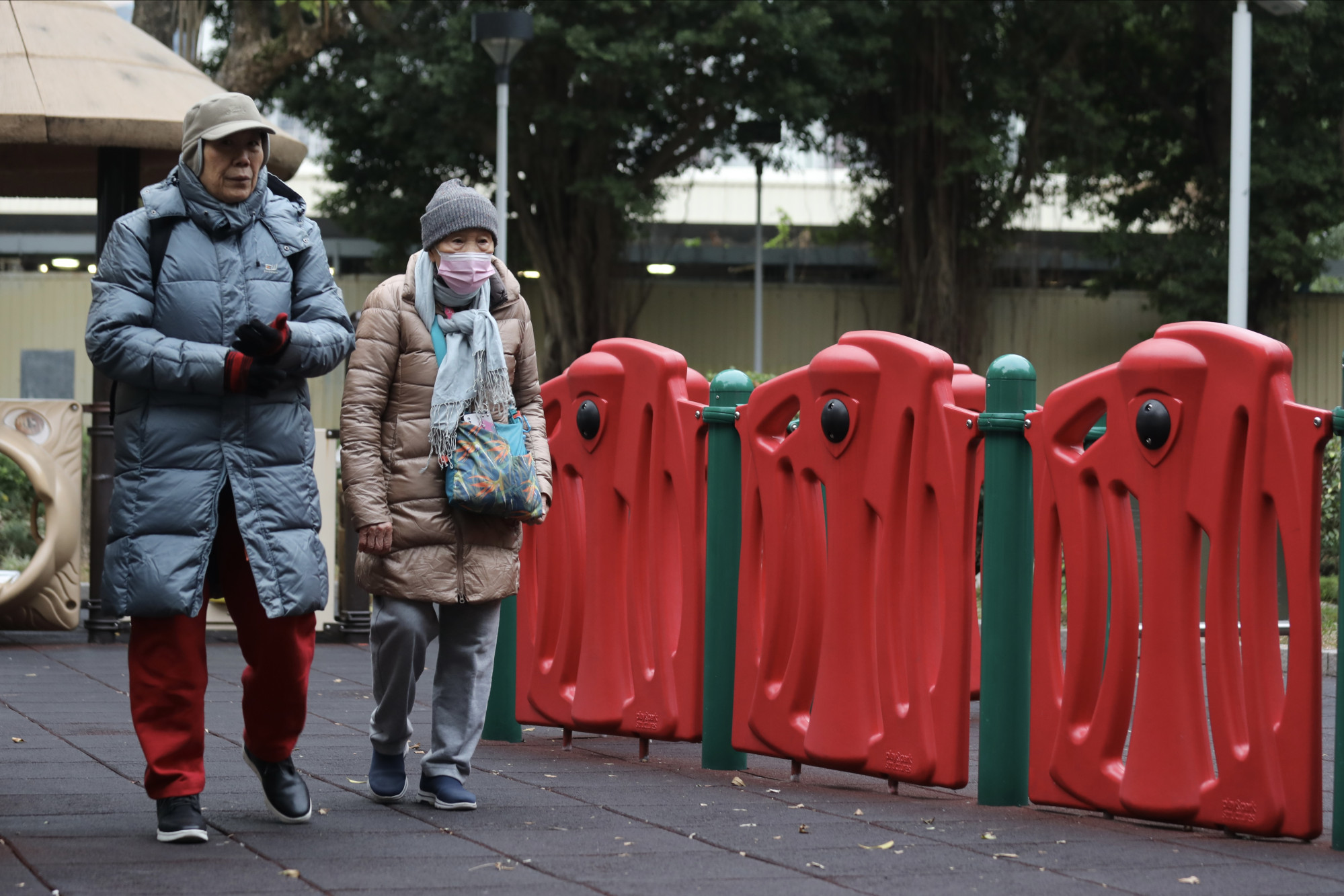Hongkonger should enjoy cold spell while it lasts, as experts say global warming to push mercury higher in coming winters
The Hong Kong Observatory on Friday said the minimum temperature recorded at its Tsim Sha Tsui headquarters was 8.6 degrees Celsius (47.5 Fahrenheit), the coldest reading so far for this winter.
Hiker on Hong Kong’s highest peak missing for over 18 hours amid freezing cold
Atop Tai Mo Shan, the city’s tallest peak at 957 metres (3,140 feet), temperatures dipped to below freezing at -1.6 degrees at around 5am.
The forecaster said the cold and dry weather along the southern Chinese coast was brought on by a winter monsoon.
The Observatory also predicted this winter would see “normal or above normal temperatures”.
According to the forecaster, normal temperatures for Hong Kong between December and February typically range from 16.8 to 17.7 degrees, while above normal is anything that exceeds 17.7 degrees.
Temperatures were expected to hover at about 9 degrees on Saturday and rise steadily over the following days to 14 degrees on December 26, it added.

The Observatory also expected this winter would yield fewer cold days, referring to when temperatures drop below 12 degrees, than past years as a result of climate warming. The trend was likely to continue in the coming years, it said.
Hong Kong recorded 13 cold days last winter.
Leung, a former assistant director at the Observatory, stressed that the coming temperature fluctuation, when the mercury would rise six degrees in less than a week, was normal.
“Again, it’s not uncommon, because in the old days during winter, we did have weather patterns like this, a spell of warm weather followed by a spell of cold weather,” he said. “The only difference is that in the old days, the temperature was a lot colder.”
Cold spell to chill Hong Kong in winter solstice, Christmas: forecaster
Leung added that Hong Kong generally felt cooler than other locations experiencing similar temperatures.
“Firstly, homes are not built to be heated during the winter and in Hong Kong, when we have cold weather it is usually dry and windy, so the wind chill could be one of the reasons.”
Lam Chiu-ying, a former Observatory director, agreed and said the city would experience week-long spells of colder weather in the future similar to the current conditions, but with increasing mean temperatures.
“At the moment, we are having a severe cold spell with cold Siberian air coming to Hong Kong, this is part of our normal winter pattern,” he said.
Hong Kong Observatory issues first cold weather warning for winter
But these cold spells would be warmer in the future and the city would also see more very hot days hitting the 35-degree mark during summers, he added.
Lam said that Hong Kong had also experienced about 50 very hot days per summer in recent years, adding that the figure could reach 90 by 2050.
The city had already seen an increase in the number of hot nights over the years, he said, referring to those that reached 28 degrees or above.
“Half a century ago, there were only a couple of hot nights [in summer], by the turn of the century, it was about 20,” Lam said.
The Meteorological Society’s Leung added that global warning would create warmer summers and winters, as well as producing more extreme weather such as the black rainstorm that occurred in September.